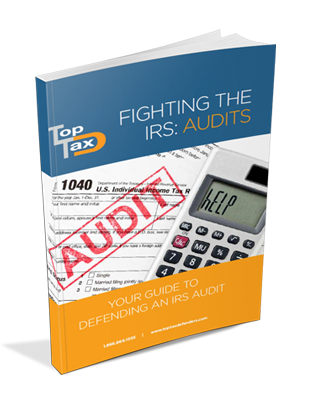Have you been notified by the IRS criminal-investigation division that you are under investigation for unfiled taxes, tax fraud, or any other deliberate misrepresentation on your tax return? If so, you will need the help of an experienced tax firm for criminal tax defense.
Some people believe that a notice from the criminal-investigation division is the same as being picked for audit. However, criminal investigation is much more serious than a routine audit, which is simply used as a means to examine your return items in detail. If you are under criminal investigation, it means that the IRS believes that you have deliberately committed a tax crime by either failing to file your taxes or by including false information on your tax return.
Are You Guilty of Tax Crimes?
If the IRS finds that you are guilty of tax crimes, you can serve time in prison. This is why it is important to understand the process and have a tax firm on your side throughout the investigation. The IRS will conduct audits in an attempt to uncover fraudulent information on your tax filings. If you have been chosen for an audit, and you know that you have false information on your tax file, you will need to employ a tax firm for audit representation.
Besides being picked for an audit when you know you have included false information on your tax return, there are some other indications that you are being investigated. If you, your family members, or your co-workers have been visited by IRS criminal-investigation division agents, or even FBI agents, you could be under investigation for tax crimes. Your bank or any of your other financial institutions can receive a subpoena for documents related to your taxes and finances.
If the IRS believes you have deliberately failed to file taxes or included false information on a tax return, it may place you under criminal investigation instead of an audit.
>>Click For More About Criminal Matters and How to Hire an Attorney
How is an Audit Different than Tax Crime Investigation?
An audit merely examines your tax return items in detail to check for errors or discrepancies. A criminal investigation means you intentionally doctored your taxes to falsify your tax profile or decided you weren’t going to pay.
>>Click Understand the Difference Between Tax Perjury and Tax Fraud
What are Examples of Common Tax Crimes?
If you have done any of the following, you may be in for a more serious investigation of possible tax crimes.
- Purposely omitted income sources on your return
- Received bank deposits from unexplained sources
- Concealed bank or brokerage accounts
- Failed to deposit receipts
- Substantially overstated deductions
- Created false statements or information related to your tax examination or audit
- Failed to file the required forms and returns
- Failed to maintain accurate records
- Failed to disclose relevant facts to your accountant, attorney, or tax preparer (and jeopardizing their livelihoods, too)
Other examples of tax crimes include using an offshore bank account to conceal assets, understating income, money laundering, tax evasion, and identity theft. If the IRS suspects hacking or phishing, a non-existent business, or an IRS scam to defraud people by text or phone, they dig even harder.
Several activities trigger criminal tax investigations:
- Falsely preparing other people’s taxes and charging inflated rates, stealing their information, or taking their refund
- Impersonating a charity to defraud others
- Failing to claim gains from cryptocurrency
- Mixing business and personal expenses to write off personal expenses as business ones
- Engaging in frivolous complaints about the IRS
If you have engaged in any of these activities, you should probably hire a professional criminal tax defense attorney.
>>Click Here For 3 Scenarios When You Should Hire a Criminal Tax Attorney
Penalties for Tax Crimes
Tax crimes are federal crimes. Being convicted of a tax crime can result in penalties such as:
- prison time, for as long as five years
- hefty fines from $10,000 to $250,000 or more
- legal fees you'll pay for the IRS's prosecution of you
These quantifiable penalties do not take into account other consequences you might suffer, like the loss of your professional licenses, difficulty obtaining credit, and damage to your personal and professional reputation.
Criminal Tax Defense Strategies
Luckily, there are ways to defend yourself against alleged tax crimes. If the charges stem from taking the advice of a lawyer, CPA, or qualified tax professional, you can use a defense called Advice of Counsel.
The government must prove you knowingly and willingly violated the law. If you can show you made an honest mistake instead of a deliberate choice, you might avoid criminal charges. If you voluntarily disclose tax violations before the IRS notices, the agency typically forgoes the expense of criminal charges.
If you can prove you have no tax owing, regardless of whether the IRS believes you underreported income and unreported expenses to offset the income, you may avoid charges.
>>Click Here to Read More About Criminal Tax Defense Strategies
Experienced Criminal Tax Lawyers: Top Tax Defenders
Instead of talking to agents directly, or trying to dispute the findings any agent may claim, you should employ the services of tax resolution experts. Top Tax Defenders has experience in criminal tax defense and can help you through a criminal tax investigation. Top Tax Defenders has over 27 years of experience in dealing with the IRS and knows how to help clients when they are subject to an IRS criminal investigation. The worst thing you can do if you're under investigation for tax crimes is go through the situation alone; instead, get Top Tax Defenders in your corner against the IRS.
>>Click Here to Read Real-Life Success Stories from Our Clients







